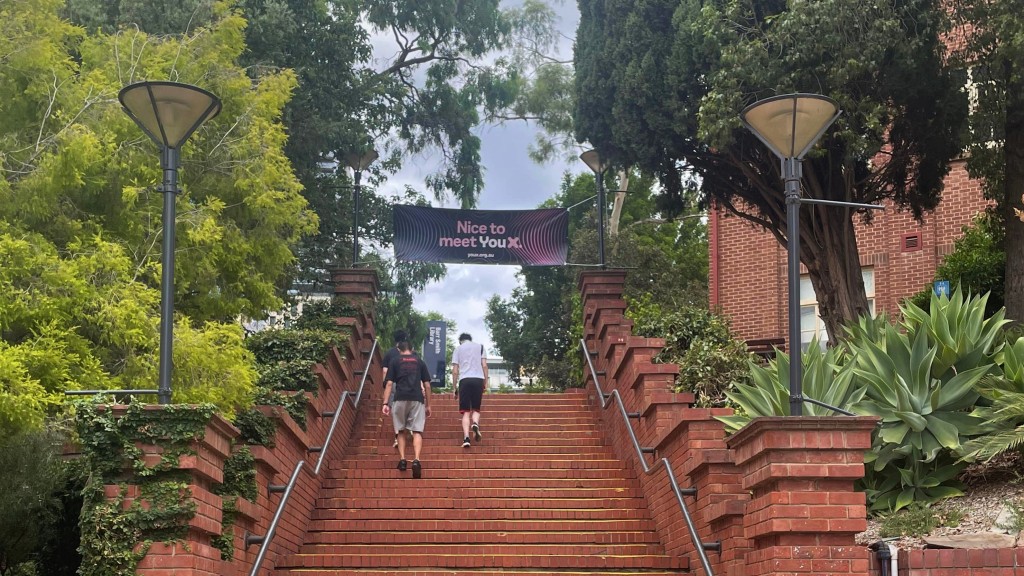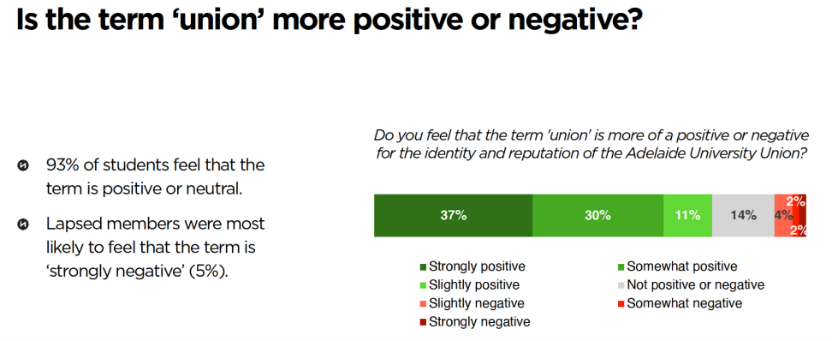and who’s surprised!

Words by Louise Jackson and Sebastian Andrew
YouX had until the 22nd of February to appeal a recent external review lodged with the State Ombudsman over a Freedom of Information request into last year’s controversial Adelaide University Union (AUU) to YouX rebrand.
They declined to release documentation due to legal advice suggesting they are not defined as an agency under Section 1(4) of the FOI Act. An agency is defined as
‘…(f) an incorporated or unincorporated body – (i) established or continued in existence for a public purpose by an Act…’.
Freedom of Information Act 1991, p5
The dispute arises as to whether YouX serves a public or private purpose.
Supporters of the FOI request cite the organisation’s establishment in legislation (the AUU is established in the Act which establishes the University), and that it provides a service to the public (any member of the University of Adelaide can access its services).
The State Ombudsman ruled that it is an agency under the FOI Act – the decision now subject to appeal by YouX.
At this stage, there has been no announcement on whether an appeal has been lodged.
In comments provided to us earlier in the week, YouX President, Luke Allen, stated that ‘the Board is still receiving and considering advice’ and ‘will take the time required to advise the Ombudsman of its decision’.
If found to be subject to the FOI Act, YouX will be required to release in-camera Board minutes (minutes from the private section of Board meetings, which media and the public are excluded from).
Edward Satchell, the student who lodged the FOI requests, raised concerns with the Ombudsman that not all YouX documents pertaining to the FOI have been provided for consideration. The Ombudsman requested that Satchell resolve this with YouX directly. No reply has yet been received to his January 25th email.
He hopes the documents released will reveal the costing of the rebrand.
Ruling on the University of Adelaide FOI
Satchell also lodged a Freedom of Information request with the University of Adelaide last year, similarly requesting documents containing information on the rebrand. The University agreed to the release of some of its documents, while others were partially released and some barred.
The University provided the reasoning that documents identified as ‘affecting business’ (Clause 7) or ‘containing confidential material’ (Clause 13), as defined by the FOI Act, should not be released in full, or at all.
Satchell lodged an appeal with the State Ombudsman, who concluded all documents should be released (with the removal of personal phone numbers). The documents were not found to fall under the protections of the FOI Act.
The University did not appeal this ruling and the documents were released last year. These documents include emails from University and YouX staff members, and the briefing presentations on the rebrand project.
The Adelaide University Union rebrand project overview
The Adelaide University Union rebrand project overview showcases a survey of 904 University of Adelaide students, 52% of whom were AUU members. This survey researched students’ awareness of AUU services, feelings toward the word ‘union’, AUU relevance, and the needs and attitudes of students.
It showed that, while many students were unaware of the services provided to them by the AUU, 73% of non-members had still used an AUU service.
The AUU’s relevance to students was seen to increase when first prompted with the AUU’s mission and goals.
Most important to the rebrand were questions around the word ‘union’.

When asked whether the word was more positive or negative to the identity of the AUU, ‘93% of students feel that the term is positive or neutral’.
Students associated the term with the themes of ‘a group, united for a common purpose’ and ‘representation’. Only 19 students had negative feelings toward the word and only 12 related it to politics.
Allen commented that the rebrand aims ‘to create a brand that better communicates the work that [YouX] does’. He referenced a focus group ‘undertaken after the survey’ which concluded that many students found the word ‘union’ ‘confusing in terms of how well it explains the services’ provided by the AUU/YouX.
In a provided comment, Satchell stated his belief that the rebrand ‘has not increased student understanding of the services of the Adelaide University Union/YouX’.
The Emails
Also released were various emails between Marketing and Communications Manager, Kearin Hausler, and the University’s Chief Marketing Officer, Dr. Benjamin Grindlay. The emails detail Grindlay’s concerns that the proposed alternatives to AUU required unnecessary explanation to be understood – undesirable for a service which needed to be easily understood and accessible.
In an email to Kearin Hausler, the Marketing and Communications Manager, Grindlay formally notes seven key concerns regarding the rebrand.
a) Loss of brand equity and history – that a rapid shift from the AUU brand would lead to a disconnect of positive sentiment towards the brand.
Dr Benjamin Grindlay, Chief Marketing Officer, Document 8
b) Disconnect between the AUU and University of Adelaide – as stated by Grindlay, ‘removing the ‘Adelaide University’ from our name it starts to remove the close association and implied relationship with the University…’
c) Brand explanation and establishment – that removing ‘Union’ and ‘Adelaide University’ requires greater and constant explanation of the new brand as these terms are universally associated with student organisations.
d) Project timing – that against a background of cuts, expenditure associated with a rebrand would gather negative responses from staff and students.
e) Loss of identity as a student run organisation – removal of the term ‘union’ risks the body being viewed as an external service rather than one operated by a student organisation.
f) Name that overshadows position – that discourse around the new brand name would overshadow the positioning statement and cause the brand story to lose traction.
g) Risk reward ratio – ‘in endeavouring to address limitations of the existing brand name we risk losing much of the significant value, positive sentiment and equity that exists within the AUU brand’.
It must be noted that Grindlay is a staff member of the University and not of YouX (then AUU), and was consulted during the rebranding given the University’s status as a key stakeholder. Because of this, Grindlay was not involved in the development or rollout of the YouX brand, nor could he speculate on whether his concerns had been justified or if/why they had been ignored by the board, when reached out to for comment.
Satchell, however, pointed to online criticism from students, as well as from domestic and international media, as evidence that Grindlay’s concerns had been justified.
Allen insists that Grindlay’s opinion is ‘highly regarded’ and that his concerns were referred to in subsequent stages of rebranding.
Even Grindlay, despite his reservations, accepts the ‘baggage’ relating to the term ‘union’.
Some view it differently; such as Billy Zimmermann, a student and an AUU Board Director at the time of the rebrand proposal. In an email to Grindlay, Zimmermann accuses the Board – at the time controlled by a right-wing coalition – as pursuing a rebranding purely out of ideological opposition to student unionism and to the term ‘union’ itself.
In October 2020, the AUU Board voted to remove three directors. Ella Shaw and Ashley Jayasuriya were removed due to their refusal to sign a statement confirming they had not leaked, or discussed in-camera items with On Dit or other media (2020 On Dit editors claimed not to have had such contact). Arabella Wauchope was removed over a private Instagram post criticising the then-SRC president, Oscar Ong, which was alleged to constitute misconduct.
To be clear, none of them were removed because of their opposition to the rebranding. In his email, Zimmermann highlights the removal of dissenting voices, even for unrelated reasons, as further evidence that the rebranding was driven by a few individuals rather than being a unanimous process. Zimmermann declined to comment further.
Has the rebrand been a success?
At this early stage, it’s unclear. The decision certainly faced a lot of blowback last year.
Satchell called the rebrand an ‘abject failure’ as it was ‘widely criticised online from both students and the international media’. Many have pointed out its similarity to porn website names.
Allen stated that YouX ‘have continued to see high engagement levels across [their] on-campus and online activities’ and brand performance will be measured over the ‘long-term’.
It remains to be seen whether students will ever receive a true explanation for the rebrand, or learn exactly what it cost.